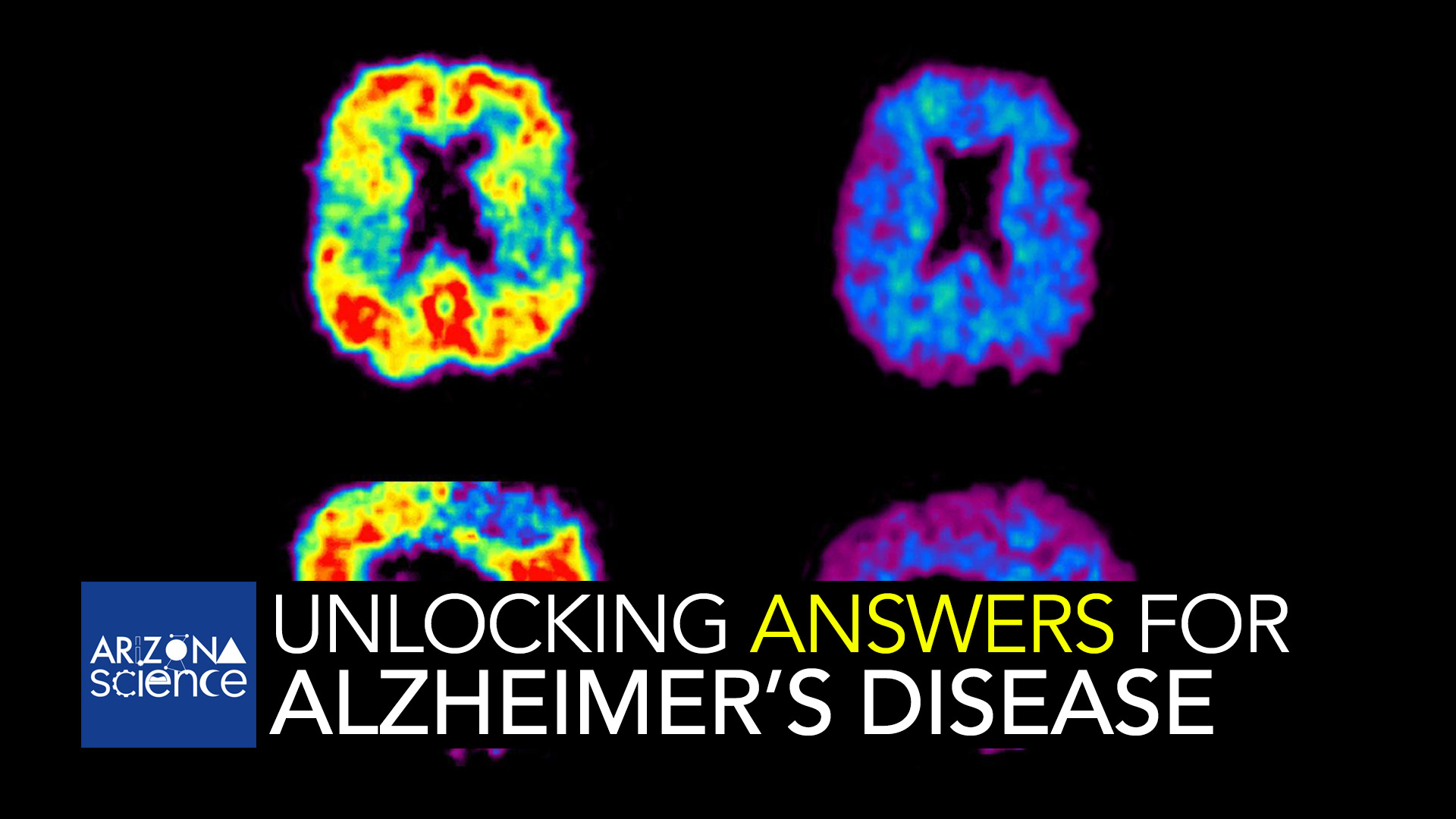 This image shows a PiB-PET scan of a patient with Alzheimer's disease on the left and an elderly person with normal memory on the right. Areas of red and yellow show high concentrations of PiB in the brain and suggest high amounts of amyloid deposits in these areas.
This image shows a PiB-PET scan of a patient with Alzheimer's disease on the left and an elderly person with normal memory on the right. Areas of red and yellow show high concentrations of PiB in the brain and suggest high amounts of amyloid deposits in these areas.
Klunkwe/CC 3.0
Researchers are looking for ways to detect the developing effects of Alzheimer's disease long before the onset of cognitive symptoms. University of Arizona Psychology and Psychiatry professor Gene Alexander describes how advances in neuroimaging and fluid biomarkers could provide answers to the progression of Alzheimer's.
Gene Alexander spoke with Leslie Tolbert, PhD., Regents Professor Emerita in Neuroscience at the University of Arizona.
Catch Arizona Science each Friday during Science Friday on NPR 89.1. You can subscribe to our podcast on Apple Music, Spotify, Amazon Music, or the NPR App. See more from Arizona Science.
MORE: Arizona Science




By submitting your comments, you hereby give AZPM the right to post your comments and potentially use them in any other form of media operated by this institution.